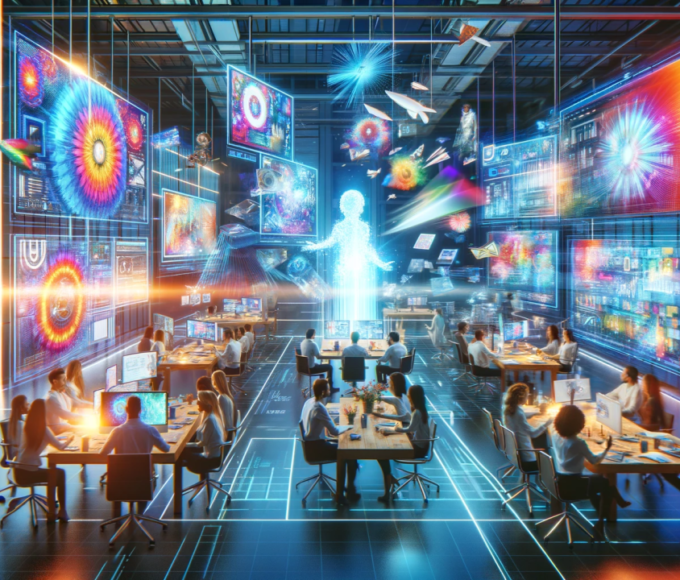In an era characterized by rapid advancements in both artificial intelligence (AI) and brain sciences, the convergence of these two fields raises profound ethical questions that give rise to the interdisciplinary field of neuroethics. Neuroethics navigates the intricate interplay between technological innovation and our understanding of the human brain, prompting us to ponder the implications of manipulating, enhancing, and interfacing with the very seat of our consciousness.
The Intersection of AI and Brain Sciences
Artificial intelligence has transformed the way we interact with technology, enabling machines to perform tasks that once required human intelligence. Simultaneously, brain sciences have deepened our comprehension of the brain’s intricate workings, from neural networks to cognitive processes. These parallel advancements have led to an exciting convergence, as AI technologies are increasingly designed to interact with and even simulate brain functions.
Enhancing Human Abilities
One prominent aspect of this intersection is the concept of human enhancement through AI and neurotechnology. As we unravel the mysteries of the brain, we gain the ability to augment its capabilities. This raises questions about the ethical boundaries of cognitive enhancement. Should we use AI to enhance memory, learning, or attention? While such enhancements could offer numerous benefits, concerns about equity and unintended consequences come to the fore.
Brain-Computer Interfaces and Consciousness
Another enthralling realm of neuroethics involves the development of brain-computer interfaces (BCIs), which allow direct communication between the brain and external devices. BCIs hold promise for assisting individuals with disabilities, enabling paralyzed individuals to control robotic limbs or communicate through thought alone. However, these interfaces could also venture into uncharted ethical territory by blurring the lines between the mind and technology. Questions arise about the preservation of personal privacy, the risk of hacking or unauthorized access to thoughts, and the potential alteration of one’s sense of self.
Neural Data Privacy and Informed Consent
In the era of big data, the collection and analysis of neural data introduce critical concerns about privacy and informed consent. The intimate nature of brain data raises issues analogous to those in genomics – who owns this data, and how should it be used? Protecting individuals from the misuse of their neural information becomes paramount, requiring robust legal and ethical frameworks to ensure that neurodata is handled with care and respect for individual autonomy.
Ethics in AI Models Replicating Brain Functions
AI models are becoming increasingly sophisticated in replicating brain functions, from language processing to image recognition. While these developments hold great potential for addressing cognitive disorders or understanding neural processes, they also provoke ethical inquiries. How accurate and representative are these models of actual human brains? Could they perpetuate biases present in the data they were trained on? Striking a balance between scientific advancement and responsible deployment is an ongoing challenge.
Addressing Neurodiversity and Ethical Inclusion
As AI tools become more integrated with brain sciences, there’s a unique opportunity to address neurodiversity and promote ethical inclusion. AI-driven interventions could provide tailored support for individuals with various neurological conditions, contributing to a more inclusive society. However, this also requires sensitivity to the potential for stigmatization, overmedicalization, and the importance of respecting diverse ways of experiencing the world.
The nexus of AI and brain sciences has ushered in a new era of possibilities and dilemmas. Neuroethics acts as a guiding light through the labyrinth of ethical complexities. This reminds us to tread thoughtfully as we harness technology to explore the depths of the human mind.
It is through thoughtful discourse, interdisciplinary collaboration, and a commitment to individual well-being that we can ensure that the marriage of AI and brain sciences leads to a future that is both scientifically remarkable and ethically sound.
















Leave a comment